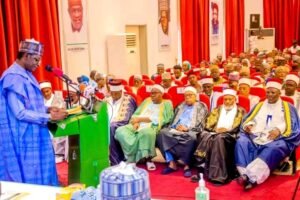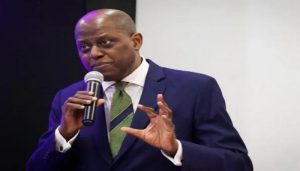Despite official claims by the National Identity Management Commission (NIMC) that its platforms are fully restored, Nigeria’s telecommunications operators have revealed that SIM-related services such as registration, activation, and swap remain partially disrupted, citing technical hitches and new compliance requirements.
The Association of Licensed Telecommunications Operators of Nigeria (ALTON), which represents the country’s mobile network providers, confirmed that while NIMC’s National Identification Number (NIN) platform is back online, full functionality has not yet been achieved due to ongoing system instabilities and adjustments to recently introduced guidelines.
Speaking with The Guardian, ALTON Chairman Gbenga Adebayo acknowledged that although the NIMC infrastructure has been reactivated, telcos are still grappling with sporadic system glitches. He noted that these issues are expected to ease in the coming days as system stability improves.“As a result of new rules and compliance requirements from NIMC regarding NIN verification processes, mobile network operators are proceeding with caution,” Adebayo said. “This is to ensure that all registration, activation, and verification activities are fully aligned with the updated directives. We are actively engaging with NIMC and other stakeholders to resolve the bottlenecks and resume full SIM services as soon as possible.”
Adebayo expressed appreciation to subscribers for their patience during the ongoing transition, assuring that efforts are underway to restore full services across the country.
Meanwhile, a senior official at one of Nigeria’s major telecom operators, who spoke anonymously, confirmed that challenges persist with NIMC’s verification portal, impacting customer onboarding and SIM replacement activities at retail outlets.
Contrary to these reports, NIMC had earlier issued a public notice assuring Nigerians that all platforms—including modification, verification, authentication, and enrolment services—were fully operational. It urged citizens facing difficulties to reach out via its social media handles or email the customer care desk for resolution.
Despite these setbacks, NIMC has continued to expand its database. As of June 30, 2025, the agency had issued a total of 121 million National Identification Numbers (NINs), up from 114 million in December 2024. This indicates progress in the agency’s push toward universal digital identity coverage, a key pillar in Nigeria’s digital economy roadmap.
Lagos State continues to lead with the highest cumulative enrolment, surpassing 12.9 million registrations, followed closely by Kano State with 11.07 million. Kaduna State rose to third place with 7.1 million enrolments, overtaking Ogun State, which now stands fourth with 5.06 million.
On gender distribution, NIMC’s data reveals that 56.5% of registered individuals (68.4 million) are male, while 43.5% (52.9 million) are female. The gender gap, though still significant, reflects a growing inclusivity in national identity enrolment, especially in urban centres.
To accelerate its goal of enrolling 95% of Nigerians by year-end, NIMC has launched the Ward Enrolment Initiative, leveraging members of the National Youth Service Corps (NYSC) to drive enrolment in underserved and rural communities.
NIMC’s Director-General/CEO, Abisoye Coker-Odusote, stated that the exercise would enhance national planning and economic development by providing an accurate population database.“This initiative will allow the government to know the actual number of Nigerians and make it easier to plan for social services, infrastructure, and economic policies,” she said.
While the identity commission continues to push for nationwide enrolment coverage, telcos are urging faster system stabilization and clearer communication from NIMC to avoid further disruptions to critical mobile services that rely on seamless NIN verification.








